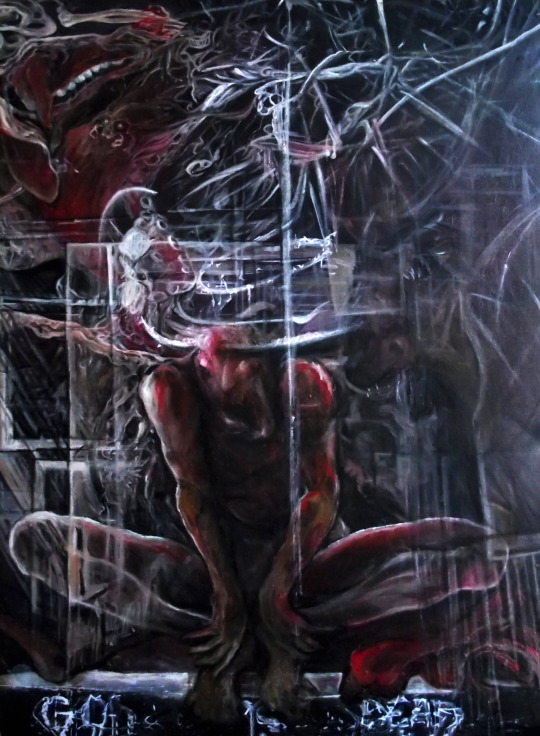#ort_philosophically
Text
[ Finnish philosophy at RPG Maker]
„...never has a religion, directly or indirectly, either as dogma or as allegory, contained a truth. For all religions grew out of dread or necessity, and came into existence through an error of the reason.“
— © «Human, all too human», Friedriech Nietzche.
As you know, The Radist — owner of ORT — has sunk deep into the Fear & Hunger community because of the rather specific and unusual experience from both games, and the second part, Termina, is replete with memorable characters, plot twists and a style that recalls a vicious mix of Shadows Over Innsmouth, Resident Evil IV and Pathologic. Overall, the head sawing simulator was a hit.
But at the same time, like any good work of art, «Fear & Hunger» also has some philosophical part, which seems that only people from Eastern and Northern Europe could carry through and reveal in themselves — and a little bit from each of these parts of the world is in Finland.
And this philosophy lies in the name of the game — Fear and Hunger. Or rather — in what does the name stand for: the actual God of Fear and Hunger, who within the universe of the game is born at the very bottom of the world, in the deepest pit where no man has set foot, and at the darkest time of humanity - in the Dark Ages, when humanity is slowly decaying from the whims of royal snobs who want to live in luxury, often making literal sacrifices in the name of it.
It would seem that what good can a deity with a name like that do? And... No, in the second part we suddenly find ourselves in an alternate-fictional 1940s, when mankind is really made some reasonable progress in engineering and technology.
And there it tells us that it was only thanks to this deity that humanity's progress took place, which stimulated it to grow and evolve according to the principle of natural selection — overpower and survive for fear of falling into existential terror or physical exhaustion and starvation. And if you are really afraid of something, you avoid it with all your might. In this F&H world, a certain deity, who, frankly, is in some ways a trivial personification of natural natural processes, prompted such a leap. As in reality, so are most of the deities described by mankind.
And it's true: in our New Dark Ages, things are pretty bad, if you think about it, but they're still bearable. The Radist usually calls it the in-between state: we don't seem to be starving, we have food, we can live and even satisfy the higher needs of Maslow's pyramid, but that is where the joys end; although, of course, one can get lost in video games or hobbies of some kind. But there is anxiety, as well as the realization that the world is going wrong, with a growing conflagration spreading throughout the world and touching us personally in one way or another.
And it is in these times that many ask the question: «Yes, it's possible to live, but is it necessary?»
And this can be seen in the suicide statistics among the residents of those CIS countries, for example, and gradually it is taking over more decent countries as well. And drug and alcohol use are also some kind of indicator — a well-to-do and contented person will not drown his thoughts in chemicals.
It is rather ironic that works with such themes and philosophical messages are becoming more and more popular nowadays. O tempora, o mores!
And toward the end.
Speaking of Gods, which abound in this fictional universe. The moral of the games is literally that man needs to be free from the influence of any deities; in Friedrich's books, one such deity is literally the state.
Something tells me that the next titanic philosophical work on stoicism and overcoming will be written in Finland.

0 notes